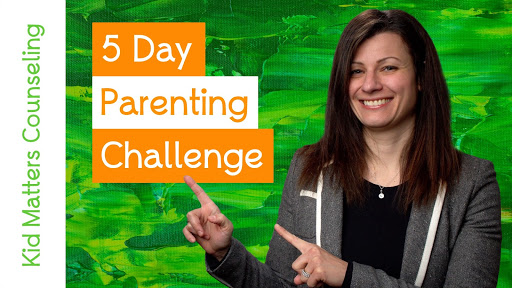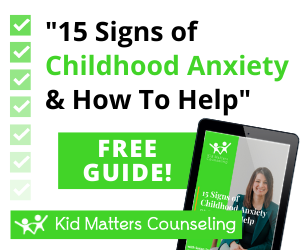Parents face new challenges each day with our children and we are always searching for answers to help us face hard to answer questions, behaviors that may seem like overreactions and as well as practical solutions to setting limits and boundaries from books, other parents, family members, and even the internet.
Sometimes the answers we find simply don’t help and it feels like we are sending out an SOS for support/guidance to figure out how to help our children weather the storm. We will question and doubt ourselves and wonder will they just “grow out of it”, “is this ”normal?” and hope it is “just a phase.”
Getting to the point where we realize we may need outside help is exhausting, emotionally and physically. Finding the right person or group of people to help your child and family get back on track can add to that already overwhelming feeling we are facing.
As adults we may have some preconceived notions and ideas about mental health treatment that include a room with a couch, an adult with a notepad and statements like “how does that make you feel?”
When we try to place a child within this image we question how this will work….and you are so right that this will likely not work! So then what!?
Here are five things to look for when choosing a therapist to work with your family:
#1: Comfort with the Therapist
Research shows that one of the most critical factors that contribute to positive results in therapy is the relationship. It is important that you meet with the practitioner first. If you are able to have a phone consultation first to get a sense of the person before you decide to meet, that is an ideal first step. You know your child best and need to get a sense that the person will be a good fit for your child.
#2: Therapist should include you in the process
Although you are exhausted and looking for help, the practitioner you choose should include you in the process. Whether it be through brief check-ins at the beginning or end of a session, periodic parent sessions or family sessions, your voice and experience is important.
It is also important to remember that the therapist will likely work with your child for 50 minutes per week…you will continue to parent the other 167 hours and 10 minutes of the week. Working with your child’s therapist will help you with ideas about what to try at home and how to support the changes that will begin to happen in session throughout the week.
#3: Knowledge and experience working with children
Knowledge, approach and experience are important factors to consider as well. Children benefit from using their natural language, play, and other non-verbal, expressive ways of sharing about their experience. When we are in an emotional state, accessing the parts of our brain to answer questions is just not possible.
Having other tools and resources available to help your child express themselves is critical. Ask questions about the practitioner’s training, certifications, and how they tend to work with children. Do they have experience and training specific to the presenting issues you are looking for help? Answers to these questions will help in your decision making process.
#4: Location, location, location…
This may sound funny, but securing a therapist that meets all your criteria and is reasonably close to where you live is important. Long travel times can negatively impact you’re your child feels about going to therapy and your ability to commit to weekly sessions. Research studies tend to indicate that it takes 21 days to break a habit and on average 66 days to create a new habit. Consistency is important for your child to feel safe and develop the therapeutic relationship to make the changes you are hoping for.
#5: Consider your Feelings
Be sure to consider how you are feeling about reaching out for additional support for your child. Children are sensitive to and can read their caregiver’s feelings about coming in for services. If you are feeling anxious or maybe experiencing mixed emotions about the next step of bringing your child in to meet the therapist, they will likely feel the same way. Be sure to ask the counselor for assistance managing your own feelings to help facilitate the process of beginning services.
Here at Kid Matters Counseling we want to make sure that the needs of your child and family are met. We will work with you every step of the way!
Visit Gloria’s Profile Page!
Kid Matters Counseling has trained therapists ready to help both kids and parents walk through the tough moments in life.
End the frustration & the confusion and let's work together! SCHEDULE APPOINTMENTNew Clients Call: (855) 586-1802
Current Clients: (855) 543-7687
Ask Us Anything!
We help anxious kids and frustrated parents. We serve Hinsdale & the Western Suburbs of Chicago.
Made with ♥︎ in Hinsdale, Illinois for Chicago
Built By Brand Your Practice.
Kid Matters Counseling, P.C. DISCLAIMER: This website and blog are for informational, educational and general discussion purposes only. It is understood that no guarantee or warranty arises from the information provided, discussed or commented upon in this website and blog nor does it constitute legal or other professional advice on any subject matter. Access to this website and blog is voluntary and at the sole risk of the user. If you think that you have a medical emergency (including clinical), call your doctor or 911 immediately. A licensed medical professional should be consulted for diagnosis and treatment of any and all medical conditions. While the information contained within this website and blog is periodically updated, no guarantee is given that the information provided is correct, complete, and/or up-to-date. See our complete Privacy Policy and Terms of Service.



